Last Updated: 5 months ago
There is a hidden danger in the world of adorable, fluffy kittens. Unfortunately, it strikes fear into the hearts of cat lovers.
You may know it as “Fading Kitten Syndrome.” It is like a silent and mysterious predator. The disease preys on the most vulnerable members of the feline family.
These tiny balls of fur, only days or weeks old, inexplicably weaken, wither, and fade away, leaving us bewildered and heartbroken. But fear not, for there is hope on the horizon.
What is Fading Kitten Syndrome?
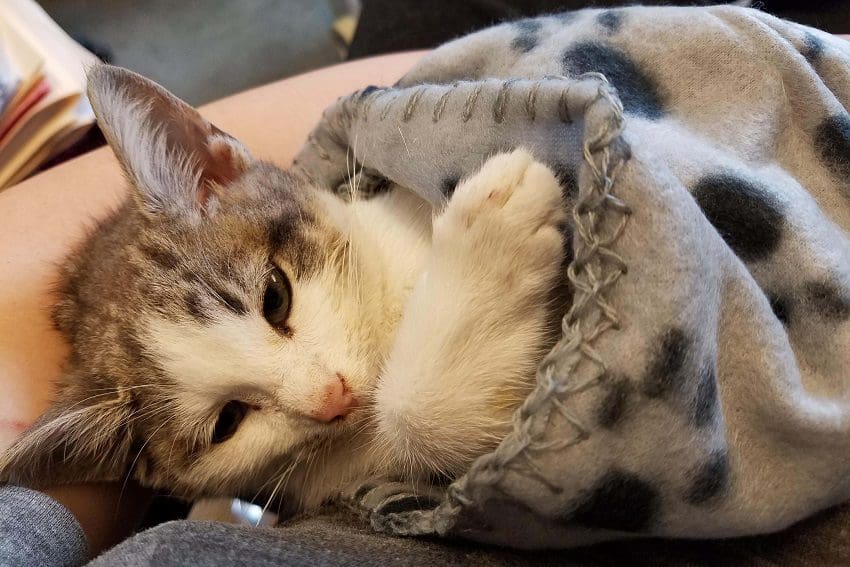
This syndrome is a mysterious and often heartbreaking condition. It affects newborns and very young kittens.
These tiny, vulnerable furballs can suddenly become weak, stop eating, and lose weight rapidly. It’s like they’re fading away right before our eyes.
When it comes to the causes of fading kitten syndrome, there is no definitive answer. It can result from various factors, such as infections, poor nutrition, or temperature.
Sometimes, it’s hard to pinpoint the exact reason. Kittens with fading kitten syndrome need special care and attention. They may require bottle-feeding, warmth, and medication.
Some kittens can pull through with this extra help, while others may not. To prevent this syndrome, it’s essential to provide pregnant cats with proper nutrition.
Keep the kittens in a warm, clean environment, and watch them closely for any signs of trouble. Early intervention can make a big difference in their chances of survival.
When Does It Happen?
Fading syndrome can happen during the first few weeks of a kitten’s life. It’s most common in the first two weeks, but it can occur up to around eight weeks old. It is when kittens are at their most fragile.
The reasons for this can be different. Sometimes, it’s due to infections, like colds or tummy troubles.
Other times, poor nutrition can be a factor. Sometimes, a mama cat might not have enough milk for her kittens, or they might not nurse properly.
During this period, it is essential to keep a close eye on the signs of fading syndrome. If you notice a kitten acting weak, not eating, or losing weight, it’s a sign that something might be wrong.
Quick action is essential. With the proper care and early help, many kittens can bounce back and grow healthy.
But for others, fading kitten syndrome can be a tough battle, and not all kittens make it. So, being attentive and getting them help when needed is super important.
How Long Does It Last?
The duration of fading kitten syndrome can vary. It might be a short battle, or it can linger for a while. It depends on how quickly the problem is spotted and how well the kitten responds to care.
Sometimes, with early intervention and the right treatment, a kitten can start getting better in a few days. They might regain their strength and start eating again. That’s the best outcome!
But for some, it can last longer, maybe a week or more. These kittens need constant care, like keeping them warm and feeding them by hand.
Sadly, for a few kittens, fading syndrome might be too much to overcome, and they may not survive. It is why keeping a close watch on young kittens is vital.
If you see any signs of trouble, it’s essential to act fast and get them the help they need. Every day can make a big difference in their chances of pulling through.
Causes of Fading Kitten Syndrome
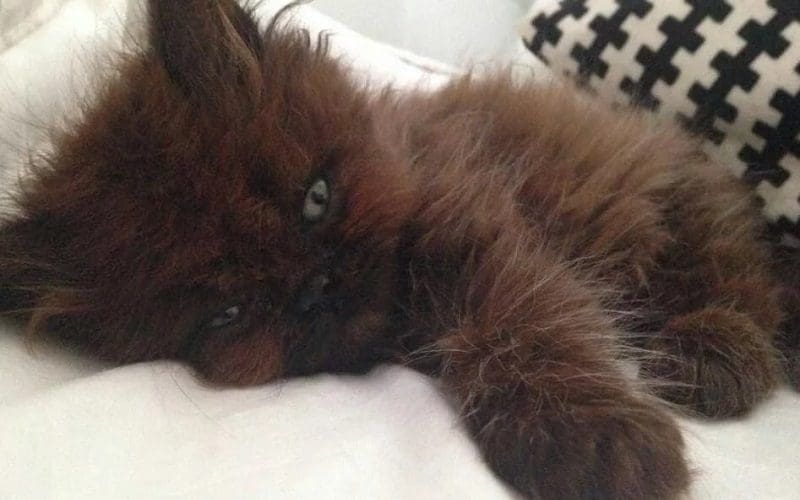
This syndrome can have various causes, and sometimes it’s a mix of different things. One common reason is infection. Kittens have weaker immune systems when they’re young.
It depends on whether they can catch things like colds or tummy bugs more quickly. These infections can make them weak and stop them from eating.
Poor nutrition is another factor. If a mama cat isn’t eating well during pregnancy or nursing, her kittens might not get the necessary nutrients.
Sometimes, a kitten can’t nurse properly, and they don’t get enough milk. Sometimes, the cause of fading kittens is a low temperature and the resulting unpleasant symptoms.
Newborn kittens can’t regulate their body heat well, so if they get too cold, it can lead to trouble.
Stress and overcrowding can also play a role. If kittens are in a chaotic or dirty environment, it can weaken them. For some kittens, the exact cause might be a mystery.
Fading kitten syndrome is still not fully understood. And that makes it even more challenging.
The key is to keep a close eye on young kittens. You need to provide a clean and warm space and seek help from a vet if you notice any trouble.
Signs and Symptoms of Fading Kitten Syndrome
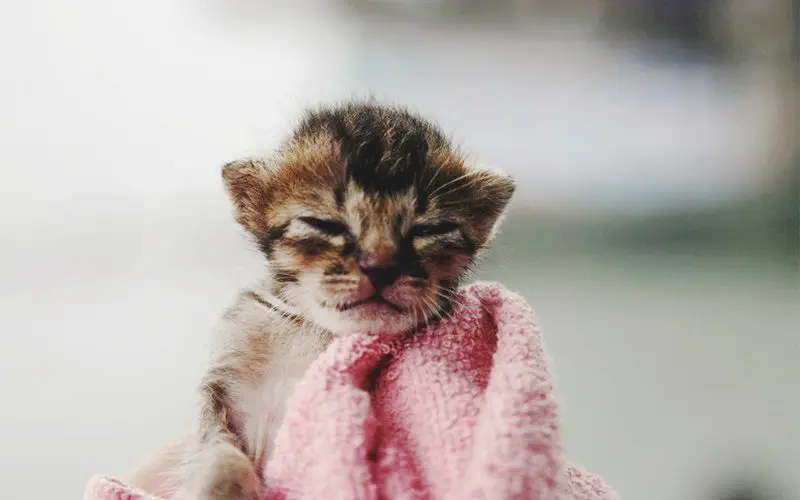
Recognizing the signs and symptoms of fading kitten syndrome is crucial for helping young kittens in need. Some common indicators include:
- Weakness: Affected kittens may become lethargic. Such fading kitten symptoms include not being able to play like their littermates.
- Lack of appetite: Kittens with this syndrome may stop nursing or eating independently, leading to weight loss.
- Cool body temperature: They might feel colder than usual as they struggle to regulate their body heat.
- Dehydration: You may notice dry gums, and the skin on the back of their neck may “tent” when gently lifted.
- Breathing Problems: Rapid or labored breathing can be a sign of distress.
- Diarrhea or vomiting: Digestive problems are a common sign of fading syndrome.
- Crying or whining: They may vocalize more than usual, indicating their discomfort.
It’s essential to monitor kittens closely during their early weeks of life. If you notice any of these signs, seek prompt veterinary care.
With early intervention and proper treatment, many kittens can overcome fading kitten syndrome and become healthy and happy cats.
Treating for Kitten Fading Syndrome
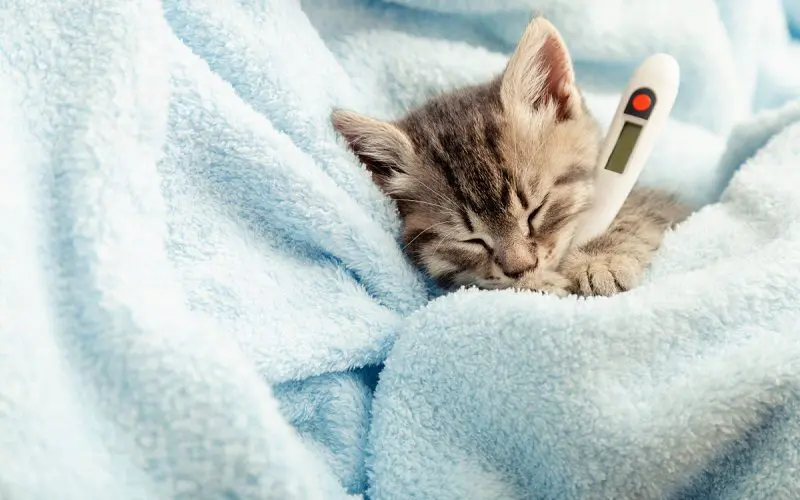
Treating this unpleasant syndrome requires special care and attention. Here are some steps to help these tiny kittens:
- Keep Warm: Keep the kitten in a warm environment, as they struggle with regulating their body temperature. You can use a heating pad or warm blankets, but ensure it’s not too hot.
- Feeding: If the kitten doesn’t nurse, you may need to feed them with a special kitten milk replacer using a small bottle or syringe. Feeding every few hours is essential.
- Hydration: Dehydration is a concern, as are the famous fading kitten symptoms. Try to give them small sips of an electrolyte solution or water if they’re not drinking milk well.
- Medication: In some cases, the veterinarian may prescribe medications. These will help treat underlying conditions such as infections or digestive problems.
- Veterinary Care: Always consult a vet. They can diagnose the exact problem and guide the best treatment.
Remember that not all kittens with withering kitten syndrome survive. But with careful care and timely intervention, many of them can pull through and grow up to be healthy, happy cats.
How Veterinarians Diagnose Kitten Fading Syndrome
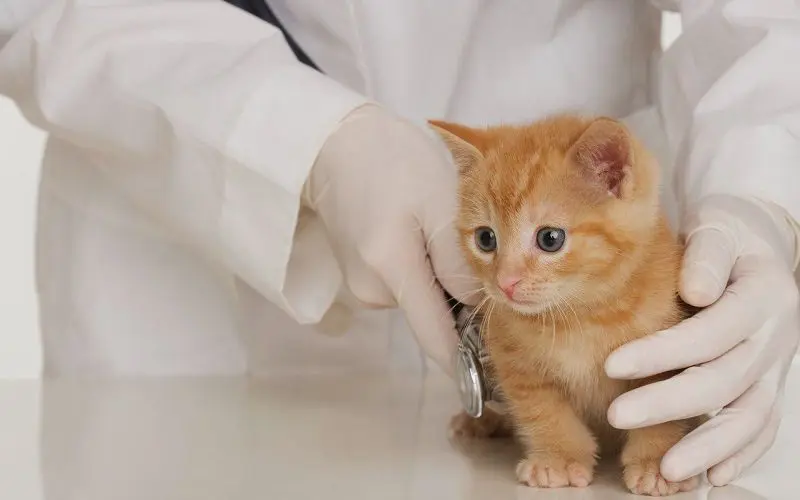
Veterinarians use various methods to diagnose fading kitten syndrome and determine what causes a kitten to weaken. Here’s how they do it:
- Physical Examination: Vets start by looking at the kitten’s overall health. They check for signs like weight loss, weakness, and body temperature.
- Medical History: They might ask questions about the kitten’s background, like when the symptoms started and if there were any problems during birth.
- Blood Tests: Blood tests can reveal if there are infections or other issues in the kitten’s body.
- Fecal Examination: Checking the kitten’s poop can help identify any parasites or digestive problems.
- X-rays or ultrasounds: These imaging techniques can show if there are any physical issues inside the kitten’s body.
By combining all these methods, vets can get a clearer picture of what’s going on and why the kitten is fading. Once diagnosed, they can recommend the best treatment to help the kitten get better.
Recovering from Kitten Fading Syndrome
Recovery from signs of fading syndrome is a hopeful journey with careful steps. Here’s what it involves:
- Nurturing Environment: Create a warm, clean, and quiet space for the recovering kitten. You can reduce stress and maintain your body temperature.
- Feeding: Continue providing special kitten milk replacer through a bottle or syringe if the kitten can’t nurse. Slowly increase the amount as the kitten improves.
- Hydration: Offer water or an electrolyte solution to keep the kitten hydrated.
- Medication: Follow your veterinarian’s instructions when prescribing any medications. It may include, for example, antibiotics or antiparasitic drugs.
- Frequent Monitoring: Keep a close eye on the kitten’s progress, looking for signs of improvement. Continue to consult the vet.
- Socialization: Give the kitten love and attention to help with emotional recovery.
Remember, every kitten is different, and the recovery process can vary. With dedication, patience, and proper care, many kittens can bounce back and become strong and healthy cats.
Conclusion
Fading kitten syndrome is a tough challenge, but with early care and help from a vet, many kittens can recover and thrive.
Keep them warm, feed them well, and watch for any issues. By acting quickly and giving lots of love, these little ones can have a brighter future.
What’s your experience with fading kitten syndrome? Please share in the comments section below.
Resources:

Olfa knows how to get things done and has a keen business sense that others admire. She’s always on the go, coming up with new ideas! Her ability to anticipate the needs of her readers and deliver information that they want is what makes CatVills such a success. She loves cuddling her cat Picaciu. He is her inspiration.
